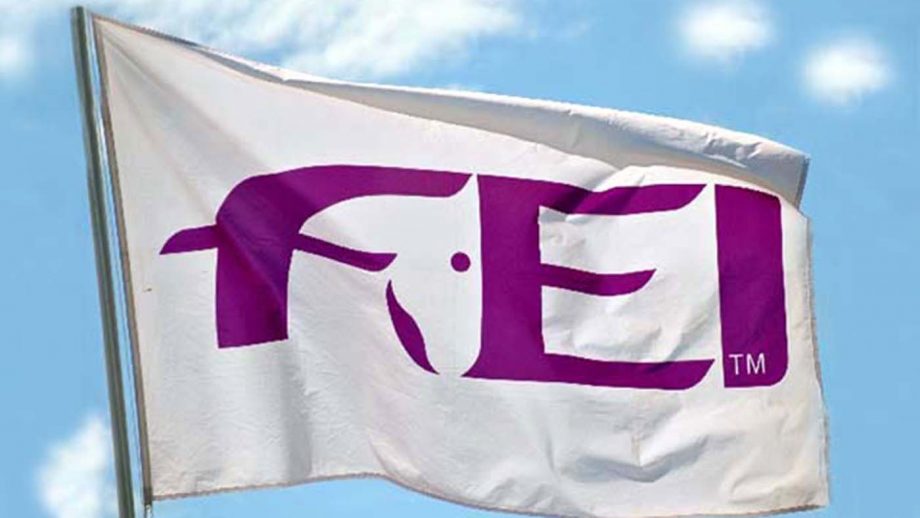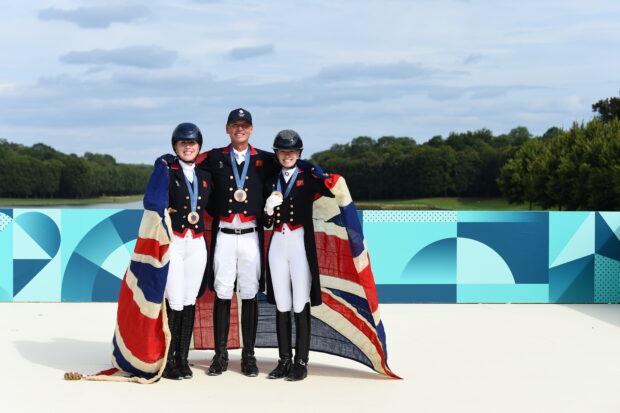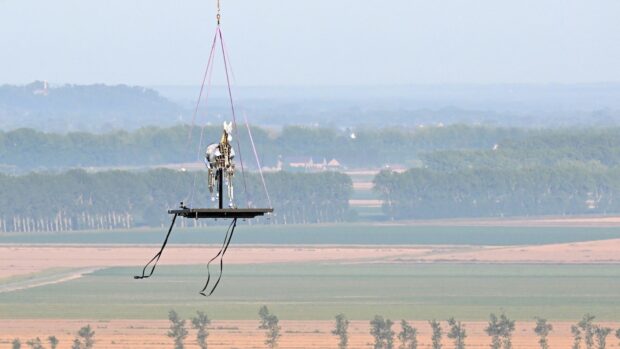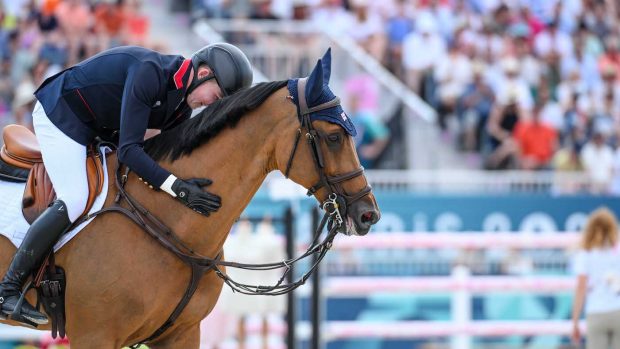QUESTION marks hover over key details of how equestrian disciplines will function at the Paris 2024 Olympic and Paralympic Games as the organising committee is not yet in place.
Strengthened minimum eligibility requirements (MERs) across all Olympic and Paralympic disciplines and proposed format changes were debated at the FEI Sports Forum on Monday (25 April). But until an organising team is in place for the FEI to liaise with, information such as accreditations, if and when a test event will take place and whether site logistics fit with the proposed competition timetable remains scarce.
FEI Olympic and eventing director Catrin Norinder told the forum organisers are expected to be finalised by the end of May, which will help the FEI firm up the timetable, logistical and operational implications.
As it stands, equestrian sport is scheduled for the first 11 days of the Paris Olympics – with proposals to fit all eventing dressage into day one. The competition arena does not have floodlights, there is no contingency day and modern pentathlon starts at the venue on day 12, which adds to the timetabling “puzzle”.
Although the opening ceremony is more than two years away, the shortened time between Tokyo and Paris means time is at a premium, particularly when factoring in qualification and MERs. Teams of three are already set in stone, with decisions to follow on how competition will work in each discipline.
Reverting to the pre-Tokyo format of the team before the individual competition headline the showjumping proposals, there were two main suggestions aimed at ensuring combinations are up to scratch in Paris.
These are upping the MERs, so combinations have to achieve three separate qualifying results of no more than four faults at 1.55m or eight faults at 1.60m.
“We want to have a certain consistency in performance of riders and horses. That’s why we want to have a minimum of three, and we are happy to accept some penalties,” said FEI jumping committee chairman Stephan Ellenbruch.
International Jumping Riders Club president Kevin Staut added: “When you go to the Olympics, there are two topics you have to really care about. Horse welfare and high-quality sport.
“What we saw at the last Olympics is bad images, most of them coming from combinations that were not [able] to jump these technical, high courses.”
He welcomed the FEI rule change for 2022, which means three-star fixtures can have 1.55m and 1.60m grands prix, as some parts of the world do not have four- and five-star competitions.
“[The new MERs] will make our horses safer to go to the Olympics, to see high-quality sport, and to make people aware of the difficulties of the Olympics before going,” he said.
The FEI’s jumping committee also looked into whether maximum faults in an Olympic round would have prevented some uncomfortable scenes in Tokyo and concluded they would not.
“We had pictures from horses that didn’t have penalties and still we had the feeling that they shouldn’t be there,” said Mr Ellenbruch. “Like it or not, if there’s a situation where the rider feels it’s not the day for him and the horse, it’s the rider’s decision and responsibility [to pull up].
“What we want to introduce, which is approaching the same problem from another side, is rules where the ground jury has the chance to stop a rider. To make that absolutely waterproof under which conditions and in what situations is the point where the ground jury takes over responsibility.”
Changes afoot
MORE stringent MERs with added criteria over where these are achieved top the eventing proposals, along with the suggestion of scheduling all 65 dressage tests on one day.
Eventing MERs could involve one CCI4/5*-L, plus at least two CCI4*-S after 1 January 2023, involving, or in addition to, a confirmation result.
In addition, the question was put to the forum of whether these should be obtained over at least two different courses, over tracks designed by two different course-designers or even events in two different countries.
“I think two different events would definitely be the way forward,” said British Equestrian performance director Dickie Waygood, adding that it also ties in with ensuring MER events are of standard. “I don’t necessarily think you need to do two different countries. Blair, for example, is very different from Bramham, which is very different to Blenheim.
“The point around course-designers could be a caveat, but the model of two different venues, I think, is a must,” he added.
There was also debate over whether to reduce the final field in the eventing individual showjumping round from 25 to 20.
Chinese rider Alex Hua Tian said he sees both sides of the argument, but that those five places do a lot in terms of helping to develop and promote the sport globally.
“It does give opportunities for riders to say they have been in the individual final. That kind of PR bump for those regions is very valuable,” he said, adding he has felt that benefit personally.
Extra competition also headed the dressage discussions, with a proposal to increase teams competing for medals in the grand prix special from eight to 10, by shortening the break.
Klaus Roeser, of the International Dressage Riders Club, was in full support.
Swedish Olympian Patrik Kittel agreed, adding that it would take the same amount of time, but allow for more flags, more participants and more exciting sport.
Equestrian Sport New Zealand dressage chairman Scott McKenna said the extra two teams would “be a massive boost for our chances to get funding to then be able to do that sustainably and consistently”.
“In terms of universality, that could mean a heck of a lot for some developing nations like us,” he said.
The team tests at the Tokyo Olympics and Paralympics were set to background music of the riders’ choice for the first time, but this may change to a single provider at Paris so it is “fair, controlled and quality is maintained”.
“Some could do a full orchestra for €20,000 [£16,880], €30,000, while others were cutting and pasting at home for their first time at an Olympics,” said Patrik. “Most trainers and riders have been very against keeping this in.”
These discussions will inform the first draft of Olympic and Paralympic regulations, which will go through a review and redraft process before being finalised and voted on at the FEI general assembly in November.
You might also be interested in:

Subscribe to Horse & Hound magazine today – and enjoy unlimited website access all year round

Pivotal week for horse sport at Paris 2024: Olympic and Paralympic formats to be thrashed out this week

*Opinion* Olympic teams of three, new hoops and whose decision is it anyway?
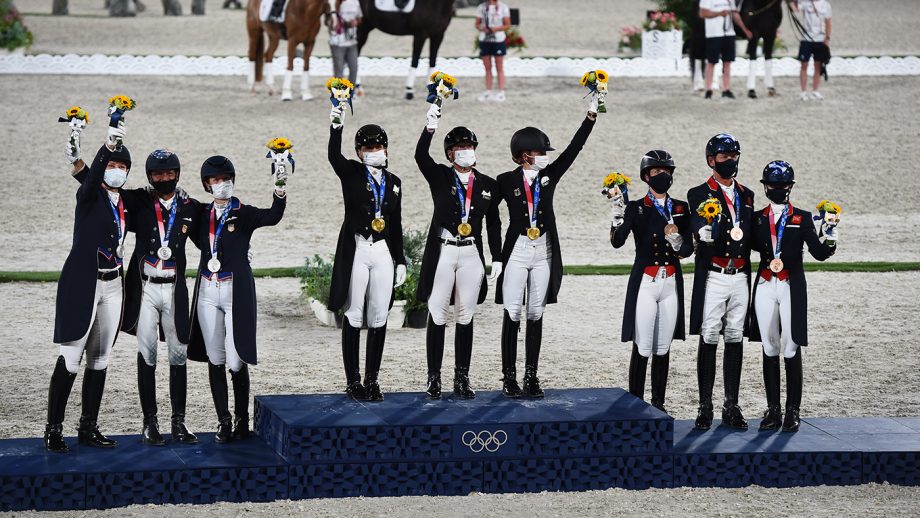
Three to a team gets the nod for Paris 2024 despite concerns

Early plans revealed for ‘most spectacular’ Paris 2024 equestrian venue
Horse & Hound magazine, out every Thursday, is packed with all the latest news and reports, as well as interviews, specials, nostalgia, vet and training advice. Find how you can enjoy the magazine delivered to your door every week, plus options to upgrade your subscription to access our online service that brings you breaking news and reports as well as other benefits.

